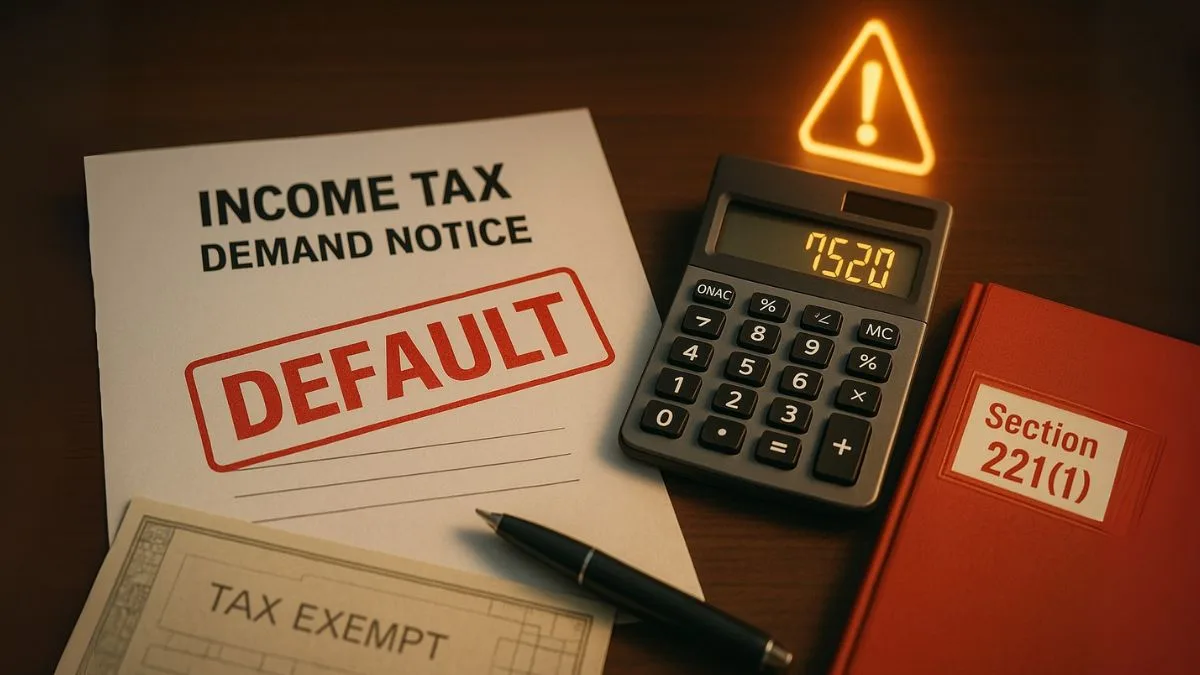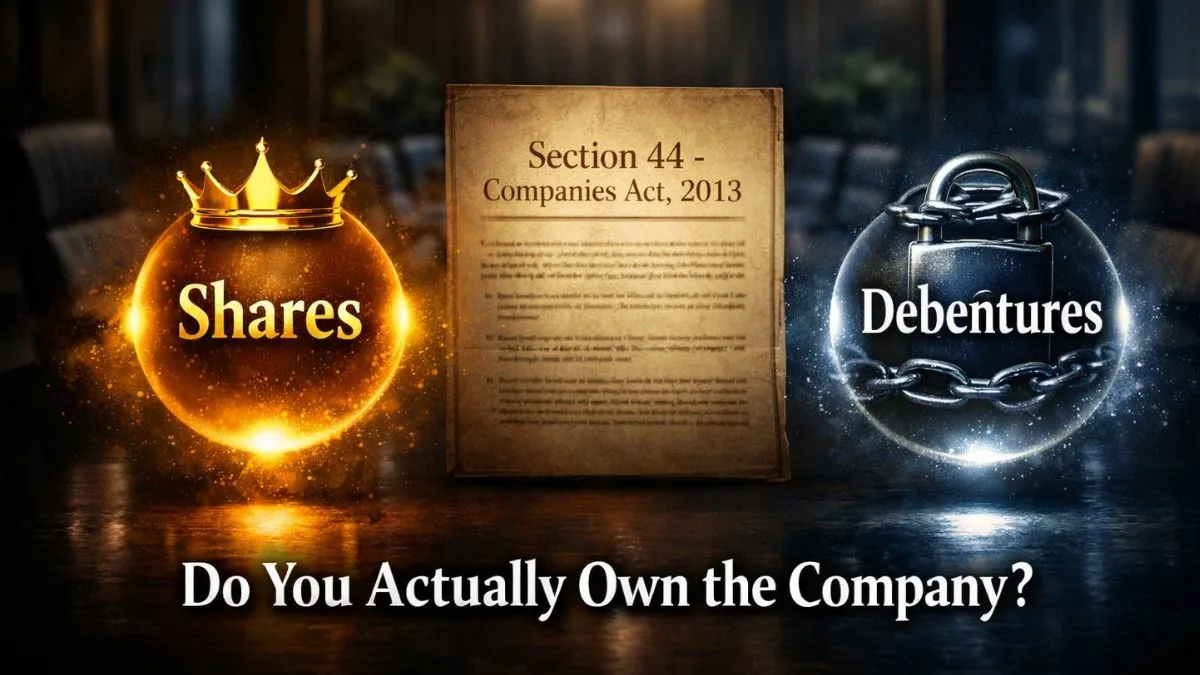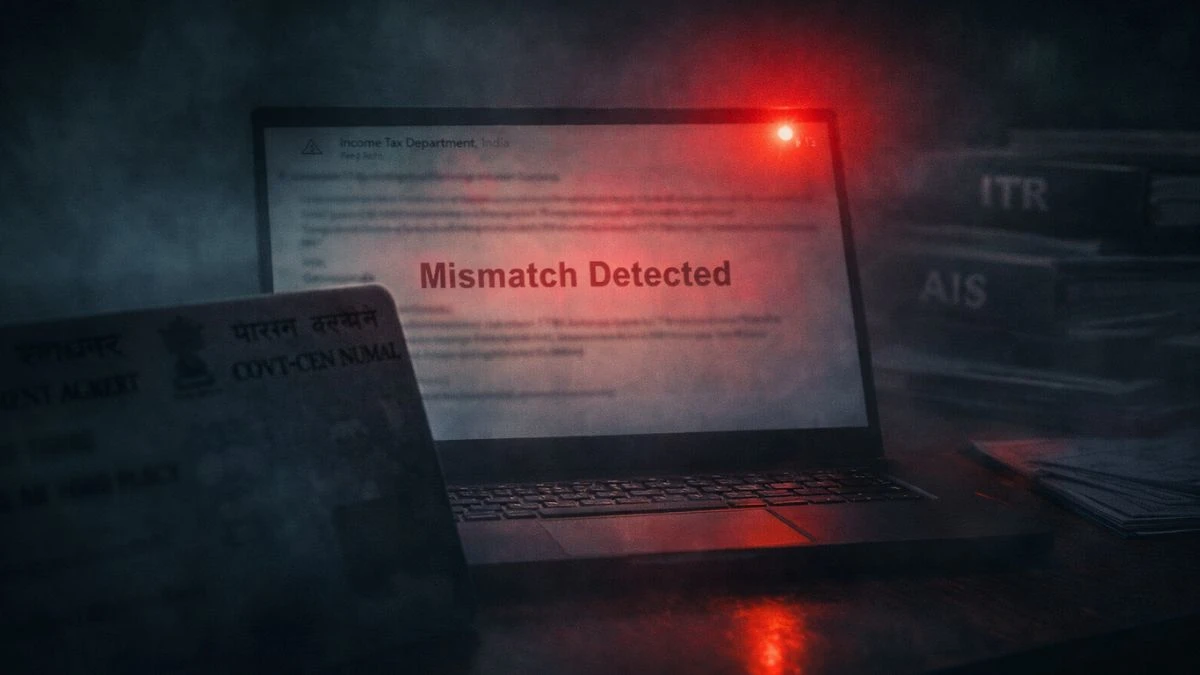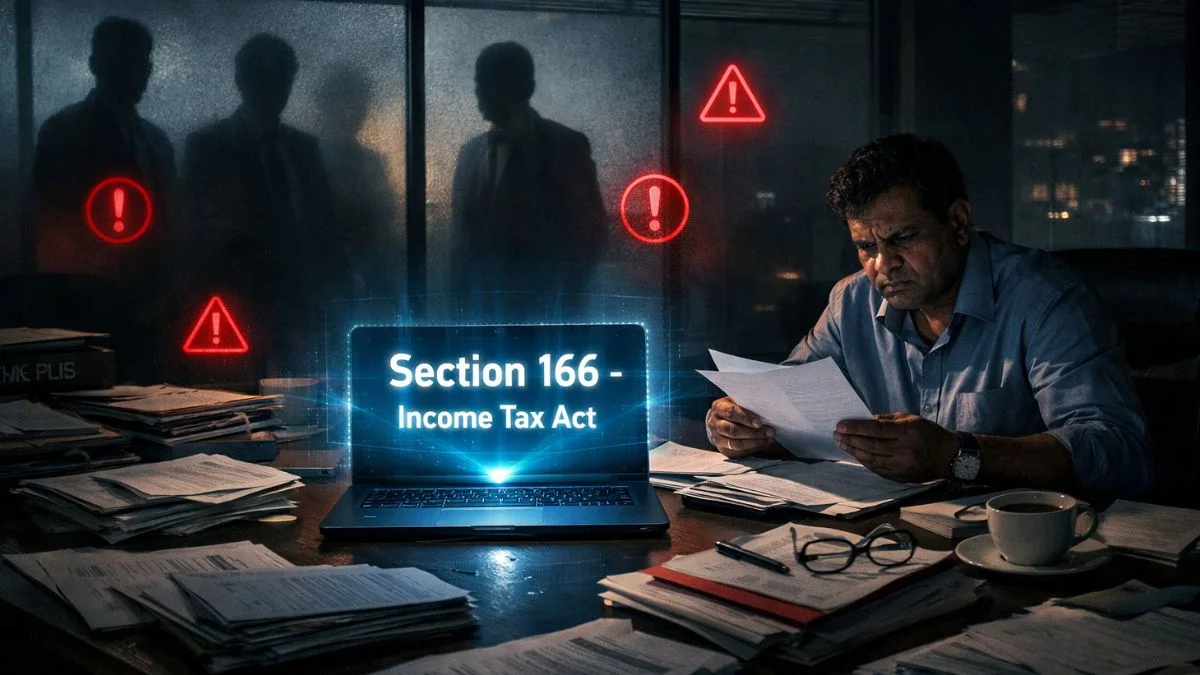
Tax compliance is one of the most crucial responsibilities of every taxpayer. The Indian Income Tax Act not only specifies how income should be taxed but also provides for penalties in cases of non-compliance. One such important provision is Section 221(1) of the Income Tax Act, which covers the penalty for default in payment of tax. This section is a deterrent for taxpayers who, despite being assessed, fail to discharge their liability. Importantly, it gives power to the income tax officer to disallow any expense or impose penalties depending on the circumstances of default.
Understanding Section 221(1) of Income Tax Act
Section 221(1) comes into effect when a taxpayer is considered an “assessee in default.” This situation arises when the person has been assessed & demand has been raised, but the tax payable is not paid within the stipulated time. In such cases, the income tax officer has discretionary power to levy a penalty.
The idea is simple: once you have been assessed, payment of tax is mandatory. If you delay or avoid, penalties follow. However, the provision is also fair — the penalty is not automatic & depends on the facts of each case.
Scope and Applicability
Section 221(1) applies in the following situations:
- Tax Assessed but Not Paid – The assessee has received an assessment order and tax demand but failed to pay within the time allowed."
- Failure Without Justifiable Cause – If the taxpayer can prove reasonable cause for non-payment, penalties may not be imposed.
- Discretionary Power of Officer – It gives power to the income tax officer to disallow any expense or impose penalties based on circumstances.
Thus, while the law is strict, it also provides room for genuine cases of hardship.
Also Read: Understanding Penalties for Default in Tax Payments
Quantum of Penalty Under Section 221(1)
The penalty levied under this section is not fixed. Instead, it is determined by the tax officer depending on the seriousness of the default. The penalty:
- Can go up to the amount of tax in arrears.
- Cannot exceed the total tax due.
- May be waived or reduced if the assessee shows a reasonable cause.
This ensures penalties are proportionate and not excessively burdensome.
Example of Section 221(1) in Practice
Suppose an assessee is assessed to have a tax liability of ₹1,00,000. The deadline to pay is 30 days, but he pays nothing. In this case, the tax officer may levy a penalty of up to ₹1,00,000 under Section 221(1). However, if the assessee shows that non-payment was due to a genuine reason (like medical emergencies or financial crisis), the penalty may be reduced or waived.
This example demonstrates how Section 221(1) gives power to the income tax officer to disallow any expense or impose penalties based on facts.
Safeguards for Taxpayers
Even though Section 221(1) empowers officers, it also protects taxpayers by requiring:
- Opportunity of Being Heard – No penalty is imposed without giving the assessee a chance to explain.
- Reasonable Cause Exemption – If genuine hardship is proven, penalties may be waived.
- Limits on Penalty – The maximum penalty cannot exceed the tax due.
These safeguards ensure that penalties are fair & not arbitrary.
Also Read: Penalties, Offences, and Consequences
Judicial Interpretations
Over the years, courts have clarified the scope of Section 221(1). In many rulings, it has been held that penalties should not be automatic but must depend on the taxpayer’s conduct. If the default was deliberate, penalty applies. But if the assessee genuinely could not pay, harsh penalties are unjustified.
This balanced approach helps maintain fairness in taxation while discouraging willful defaults.
Impact on Businesses and Individuals
For businesses, non-payment of taxes can result in heavy penalties, reputational damage, and increased scrutiny by authorities. For individuals, it can lead to financial strain & legal complications.
Section 221(1) thus acts as a reminder for all taxpayers to prioritize timely tax payments. It underscores the principle that while errors can be excused, deliberate non-compliance cannot."
Practical Tips to Avoid Penalties Under Section 221(1)
- Pay Taxes on Time – Always adhere to the deadlines.
- Maintain Adequate Funds – Keep tax provisions aside in financial planning.
- Respond to Notices Promptly – If a demand notice is issued, respond immediately.
- Document Genuine Hardship – If you cannot pay, maintain proper proof of reasons.
By following these practices, taxpayers can avoid unnecessary penalties.
Also Read: Complete Guide on Penalties for Non-Compliance
Conclusion
To sum up, Section 221(1) of Income Tax Act is a critical provision that ensures taxpayers remain compliant with their obligations. It gives power to the income tax officer to disallow any expense or impose penalties in cases of willful default. While strict, it also provides flexibility by considering genuine hardships.
👉 Want expert help to avoid penalties and manage your tax compliance effectively? Visit Callmyca.com for professional guidance. Our experts simplify tax law and keep you penalty-free.











